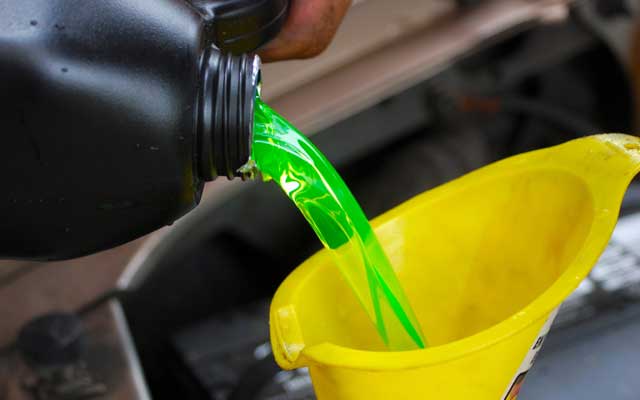Antifreeze, also known as coolant, plays a critical role in the functioning and longevity of a vehicle’s engine. This fluid is essential for regulating the temperature of the engine and preventing it from overheating or freezing under extreme conditions. By understanding the role of antifreeze in engine protection, one can appreciate how this often-overlooked fluid is fundamental to a car’s overall performance.

The primary function of antifreeze is to maintain the engine’s temperature within a safe and efficient range. Without antifreeze, the engine could overheat in hot weather or freeze in cold temperatures, leading to potential damage. Antifreeze works by circulating through the engine, where it absorbs heat and carries it to the radiator. The radiator then cools the fluid, and the cycle repeats. This process ensures that the engine operates at an optimal temperature, reducing the risk of overheating, which can cause serious engine damage such as warped parts, melted components, or complete engine failure.
In addition to heat management, antifreeze also prevents the engine coolant from freezing in winter temperatures. If the coolant were to freeze, it could cause the engine block to crack, leading to expensive repairs. Antifreeze lowers the freezing point of the coolant, allowing it to remain liquid even in subzero temperatures. This antifreeze property is especially important in regions with harsh winters, where the engine is at risk of freezing overnight or during cold starts.
Antifreeze is typically composed of a mixture of water and chemicals such as ethylene glycol or propylene glycol. These chemicals help the fluid maintain its effectiveness across a broad temperature range. Ethylene glycol is the most common antifreeze agent and is known for its excellent heat absorption and antifreeze properties. Propylene glycol, while less effective at heat transfer, is considered a safer alternative, especially in environments where toxicity could be a concern, such as in areas with pets or wildlife.
Another vital role of antifreeze is to protect the engine’s internal components from corrosion and rust. The chemicals in antifreeze are formulated to prevent role of antifreeze rust from forming on the metal parts of the engine, such as the radiator, water pump, and cylinder head. Without this protection, the metal parts could corrode over time, leading to leaks, inefficient heat transfer, and costly repairs. Antifreeze contains corrosion inhibitors that protect the engine’s cooling system, ensuring it runs smoothly for longer periods.
Antifreeze also has anti-foaming properties, which help prevent the formation of foam in the cooling system. Foam can interfere with the proper circulation of the coolant, leading to hot spots in the engine and inefficient cooling. By reducing foam formation, antifreeze ensures that the coolant flows effectively and evenly throughout the engine, optimizing heat dissipation.
The importance of antifreeze extends beyond just the engine. It also impacts the overall performance of the vehicle’s heating system. When the engine is at the correct temperature, the cabin heating system can function effectively, providing warm air for the passengers. Without antifreeze, the vehicle’s heater would struggle to perform in cold weather, leaving passengers uncomfortable and at risk of exposure to cold temperatures.
Maintaining the proper antifreeze mixture is crucial for optimal performance. Over time, the antifreeze in a vehicle can break down, losing its ability to protect the engine. It is essential to regularly check the antifreeze levels and replace the fluid as recommended by the vehicle’s manufacturer. A mixture of approximately 50% antifreeze and 50% water is typically ideal for most vehicles, but the ratio may vary depending on the specific climate and vehicle type.
In conclusion, antifreeze is not just a simple fluid; it is a vital component that protects the engine from extreme temperatures, prevents freezing, reduces corrosion, and ensures the efficient operation of the cooling system. Regular maintenance of antifreeze levels and ensuring the correct mixture is essential for the longevity and performance of a vehicle. Without antifreeze, the engine would be vulnerable to damage, making it a crucial aspect of vehicle care that should not be overlooked
